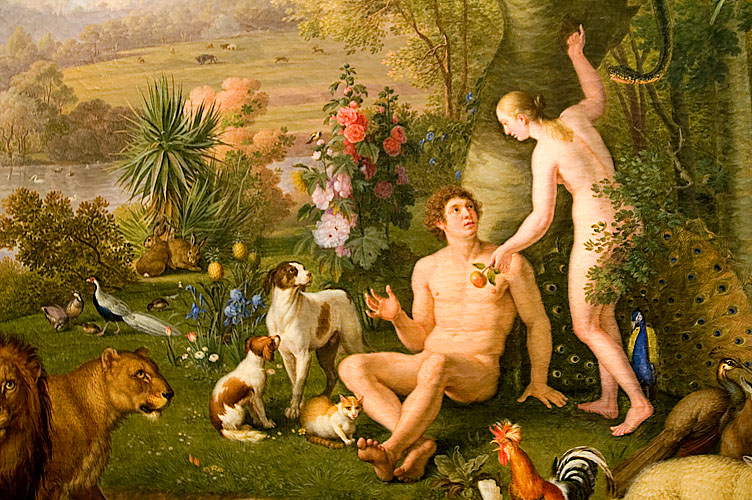
15 May 2014 by Tony Dibble-
Introduction
A Christian or Biblical worldview represents the Christian’s framework from which he defends his beliefs to the world. The world repeatedly challenges his belief-system. The best defence against this is for the Christian to have his views sharpened and to be alert in his faith. To do this successfully, his relationship with GOD must be committed and he should never waiver from this relationship.
The world’s belief system is aligned to humanism. Humanism is broadly-speaking, the liberation and glorification of man as the basis of his existence. Established values and social norms are set aside if they are considered to limit a person’s freedom of expression and the development of his total personality. If need be, laws could be amended to permit today, practices which were once regarded as morally and socially unacceptable. Humanism is, in substance, yielding to the lust of the world and all that it conveys (1 John 2:15-17).
The major beliefs which the Christian adopts are creationism, the fall of man, the redemption of man, the consummation of the world and the moral law of GOD.
1. Creationism
The Christian believes that GOD created the world with man as the crown of this creation (Gen1:1 & 26). Man is made in the image of GOD (Gen 1:27). The Christian does not subscribe to any belief that man evolved from a lower form of being.
Neither does he consider the universe being the result of an accident. He accepts the accounts in Genesis 1 & 2 with no reservations.
The Christian also believes that the GOD of creation is also the GOD who upholds that creation continually (Job 38-41; Ps 103:19; Matt 10:29-30; Heb1:3). GOD did not create the universe and all that is in it, including human life, only to let it run independently from him.
To the Christian, the Bible is the infallible word of GOD (John 17:17). The Bible however, is not a book of science and it is not there to contradict science. Much of what is loosely passed off as science may not necessarily turn out to be science. Science rests on assumptions and can, at times, only advance theories. And evolution is one such unfounded theory.
The Christian is not anti-scientific. He is not against for example, the findings of the medical sciences provided these findings are not used to manipulate human life and behaviour. Their use should be for the advancement of mankind, as life is a gift from GOD (Eph 5:29).
The Christian recognises that the findings of archaeology may support the narratives in the Bible, but only to an extent. On the contrary, the Bible may be able to explain gaps within the field of archaeology!
The test for the Christian about the truth of the Bible is not to be from any proof advanced by research. It is instead, from the witness by the Holy Spirit (John 16:13) who constantly upholds the word of truth. It is the Holy Spirit who convicts us that GOD’s word is true.
2. The Fall and Redemption of Man
The fall in Genesis 3 is the explanation of man’s inheritance of sin and his ultimate entry into hell. Only if he is redeemed and forgiven by a loving GOD is man able to avoid ending up in hell (Rom 3:23-26; 8: 2-14; 1 Cor 15:22). Redemption has come about only through the death and resurrection of Christ. Sinful man, who fell in rebellion against GOD through Adam, can only be restored by removing the price for the fall. That price is death. Sinless Christ, who is GOD in man, died and removed that death penalty. Being sinless, Christ conquers death on behalf of man.
Present-day humanism holds the view that mankind exists only for himself. Man would bring glory to himself through his individual and organised aspirations and efforts. The development of the individual as his own ‘god’ is seen as his ultimate goal: man is fundamentally good and he needs to move in that direction, according to the humanists. Humanism therefore does not accept the fall as it would have no place for sin. Hence, humanism sees no need for redemption by Christ.
This clearly contradicts the Bible. The Bible reveals that man is created for the glory of GOD and for fellowship with Him (Ps 73:24-26; Jn 17:22, 24; 1 Cor 10:31). Man derives his strength from Christ (Phil 4:13) and not from his self confidence. Without Christ, man can do nothing (John 15:5).His ‘efforts’ and ‘achievements’ are pointless without the life in Christ.
3. Consummation of the Universe
The Christian sees an end to the world as the final stage where his redemption would be completed (2 Cor 5:10; Phil 3:20; 1 Thess 4:16-17; Tit 2:13; Rev 20:12). Christ will come as King to usher in the final age where man is restored in eternity to GOD. Divine justice would then be fulfilled. A new heaven and a new earth would be created. To the humanist, death is merely an expiration of his existence. The individual dies in time and space and there is no joy to look forward to, after death.
4. The Moral Law of GOD
As the humanist is not responsible to GOD, he does consider the moral law of GOD the standard to adopt. He therefore permits himself the luxury of reversing the laws of GOD when it suits him.
In the sixth commandment, we are told not to kill human life (Ex 20:13). However, the practice of aborting the existence of unborn infants is permitted today with no regard to the command of GOD. The adoption of euthanasia (mercy-killing to overcome prolonged suffering or to end the use of a life-support system when in a prolonged coma) is another such development. Voluntary suicide (as allowed in Amsterdam, for instance) is equally against the laws of GOD.
In a similar vein, the humanist adopts situational ethics where principles of moral conduct are readily set aside. The grounds advanced to justify such moral reversals are that more parties experience mutual enjoyment and benefit and this develops their overall personalities. A common instance is the case for same-sex marriages and homosexual activity. In this instance, the humanist has set aside the laws of GOD for the commands of men (Lev 18:22; 20:13).
Conclusion
The Christian’s view of how he is to present himself to the world should not be infiltrated by ideas advanced from the world. The Christian is, on the contrary, the salt and the light of the world (Matt 5:13 & 14).He is the standard or flag bearer. He should never waiver from the standards of truth as in the word of GOD (John 8:32). His true, eternal freedom lies in his holding fast to those fundamental truths that he was taught (2 Thess 2:15).In this, he is not alone as he is at all times ministered to by the Holy Spirit.
References for articles
http://www.menofstjoseph.com/blog/wp-content/uploads/2012/10/Adam-and-Eve.jpg









Leave a Reply